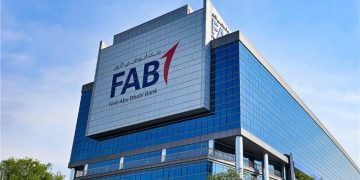Dubai has smashed through the financial glass ceiling. The emirate now sits among the world’s top four FinTech hubs according to the latest Global Financial Centres Index (GFCI 38), released September 2025.
This milestone puts Dubai in the same league as established giants like New York, London, and Singapore. More than just numbers on a ranking, this achievement is a fundamental shift in global finance geography.
Dubai’s DIFC Becomes $4.2 Billion Innovation Magnet
The Dubai International Financial Centre (DIFC) has become a money magnet for tech innovators. Over 1,500 AI, FinTech, and innovation companies now call DIFC home. These firms have collectively raised more than $4.2 billion in investment.
These aren’t just small startups hiding in co-working spaces. Major financial institutions, established tech companies, and ambitious entrepreneurs have chosen Dubai as their base for Middle East operations.
The numbers tell a growth story that started accelerating in 2025. DIFC registered 1,081 new companies in just the first six months of 2025. That’s a 32% jump compared to the same period in 2024.
How Dubai Climbed the Global Rankings
Dubai didn’t stumble into this position by accident. The city also jumped to 11th place in the overall GFCI rankings, up from 12th position. This puts Dubai ahead of traditional financial centers like Frankfurt and Tokyo.
The Global Financial Centres Index measures 120 financial centers worldwide using 140 different factors. These include regulatory environment, business infrastructure, human capital, and reputation. The index combines hard data from organizations like the World Bank with assessments from 4,877 financial professionals.
Dubai earned recognition as the only financial center in the Middle East, Africa, and South Asia region with “broad and deep” capabilities across all finance industry sectors. Only eight cities worldwide earned this classification.
DIFC Innovation Hub Drives FinTech Growth
The number of FinTech and innovation companies in DIFC grew to 1,388 from 1,081 in the first half of 2024. That’s a 28% surge in just six months.
Sheikh Maktoum bin Mohammed bin Rashid Al Maktoum explained the strategy behind this growth: “Dubai’s rise as one of the world’s pre-eminent FinTech hubs is a testament to the vision of His Highness Sheikh Mohammed bin Rashid Al Maktoum to not only place Dubai at the forefront of the world’s leading cities, but also to shape the future of diverse sectors.”
The Dubai Economic Agenda D33 plans to make the city one of the world’s top four global financial hubs. This latest ranking proves the strategy is working.
What Makes Dubai Different from Other FinTech Hubs
Dubai offers something other financial centers struggle to match: geography plus infrastructure. The city sits perfectly positioned between Europe, Asia, and Africa. Companies can reach three billion people within a four-hour flight.
But location alone doesn’t explain Dubai’s success. The emirate has built world-class digital infrastructure, created business-friendly regulations, and attracted top talent from around the globe.
Essa Kazim, Governor of DIFC, highlighted Dubai’s unique approach: “Through DIFC, we are enabling innovation, creating opportunities for growth, and ensuring Dubai continues to play a leading role in defining the future of the global economy.”
The regulatory environment particularly stands out. DIFC operates under English common law, making it familiar to international businesses. The center also offers regulatory sandboxes where FinTech companies can test new products without full regulatory compliance.
Investment Money Flows Into Dubai’s Tech Scene
The $4.2 billion raised by DIFC companies represents serious investor confidence. This money comes from local and international sources, including venture capital funds, private equity firms, and corporate investors.
Recent successful fundraising rounds include payments companies, blockchain startups, digital banking platforms, and insurtech firms. Many of these companies chose Dubai specifically because of DIFC’s regulatory framework and access to regional markets.
The investment trend shows no signs of slowing. DIFC reported that 2025 is on track to be a record year for new company registrations and capital raising activities.
Dubai’s Competition with Traditional Financial Centers
Dubai now competes directly with established financial hubs that have decades of history. New York leads the GFCI rankings with a score of 766, followed by London (765), Hong Kong (764), and Singapore (763). Dubai sits at 11th place with 748 points.
The gap might seem large, but Dubai has been closing it steadily. The city ranked first globally among financial centers expected to become more significant in the future.
This projection matters because it influences where companies choose to expand, where investors allocate capital, and where talent decides to build careers.
Regional Leadership Drives Global Ambitions
Dubai has established clear dominance in its region. The city leads all Middle East, Africa, and South Asia financial centers by a significant margin. Abu Dhabi ranks second in the region but sits much lower in global rankings.
This regional leadership creates a network effect. As Dubai attracts more international companies, these firms often use the city as a hub for broader regional operations. This brings more business, more talent, and more investment capital.
The strategy aligns with UAE’s broader economic diversification plans. Oil revenue still matters, but the country is building sustainable economic pillars in finance, technology, and innovation.
Future Growth Plans and Targets
Dubai’s ambitions extend well beyond current achievements. The Dubai Economic Agenda D33 targets the city becoming one of the world’s top four financial centers by 2033. Current GFCI rankings suggest this goal is achievable.
Plans include expanding the Innovation Hub, attracting more venture capital funds, and developing new financial products for digital assets and sustainable finance.
Arif Amiri, CEO of DIFC Authority, emphasized the long-term vision: “This achievement demonstrates the confidence the global financial community has in Dubai’s role as a catalyst for growth, and it motivates us to continue driving the future of finance from here in DIFC.”
The next GFCI ranking will be published in March 2026. Dubai will face pressure to maintain its position as other cities respond to its success with their own innovation initiatives.














